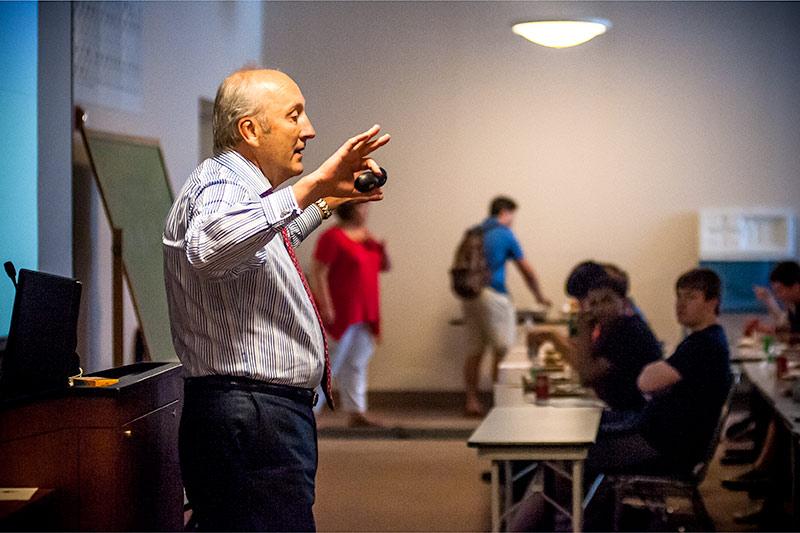Talking energy
For two days in July, exuberant groups of high school students enrolled in the Tulane Science Scholars Program (TSSP) gathered in Joseph Merrick Jones Hall on the uptown campus to discuss the ways our world uses energy and why STEM fields are important.
The Tulane Science Scholars Program grants high school students the opportunity to take college-credit courses while living in campus housing.
This year’s cohort featured 100 students, including participants from 16 different states and seven students from China and Turkey. The session offered three new courses, including Principles of Chemical Engineering; Python Programming: Introduction to Computer Science; and Computers and Musical Creativity.
A scholarship student in Introduction to Computer Science, shared that she is now “inspired to start a Society of Women Engineers club at her high school to teach girls Python programming and hopefully do for them what TSSP did for her: inspire an interest in computer science and engineering.” The student, who will apply to Tulane this year, reflected on her experience as being “an invaluable window into the life of a college student that… will make the transition from high school to college easier.”
The School of Science and Engineering Board of Advisors committee for K-12 STEM Education played a large role in the success of the 2016 program. The 11-person committee provided valuable feedback on the design of the program’s impact survey, generously supported numerous need-based scholarships and presented during the program’s “lunch-n-learn” series.
Committee members and Tulane graduates Bill Marko (E ’81, E ’83), the managing director of global investment banking firm Jefferies LLC, and Richard Mayer (E ’79), retired from Dow Chemical, were both guest presenters during the program’s “lunch-n-learn” series.
“We have a big challenge coming. There are 7.2 billion people in the world, and there will be 9 billion in the next 25 years,” said Marko. “That’s the problem we’ll all have to solve. How are we going to supply energy for all these people and not negatively impact the environment?”
Mayer echoed this call to action in his presentation saying “STEM careers and therefore STEM education have a fundamental role in sustaining the pace of innovation and developing solutions to challenges in society. Each of you has an opportunity to make a contribution to improve society and solve real-world problems.”

